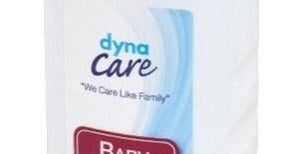McDonald's at center of E. coli outbreak
McDonald's has stopped selling Quarter Pounder hamburgers at about one-fifth of its U.S. restaurants as federal health officials investigate an outbreak of E. coli that has sickened nearly 50 people in 10 states, killing one.
The fast-food chain sold about 1 million Quarter Pounders in the timeframe that the illnesses occurred, a McDonald's spokesperson said Wednesday. The company said it believes more people would have been sickened if the contamination stemmed from the patties themselves, adding that onions used on the burgers may be the culprit.
The U.S. Centers for Disease Control and Prevention on Tuesday linked McDonald's Quarter Pounder hamburgers to the outbreak, which sickened people in Colorado, Nebraska, and other Mountain and Western states. Most of those who fell ill reported eating Quarter Pounders from McDonald's, and investigators are working to confirm which food ingredient is contaminated, according to the CDC.
What may have caused the E. coli outbreak?
Cesar Piña, the company's North America chief supply chain officer, said in a statement on Tuesday that the company's initial investigation suggests that some of the E. coli illnesses might be linked to slivered onions used in the Quarter Pounder.
McDonald's burgers are cooked at 175 degrees, above the 160 degree level needed to kill the E. coli bacteria, according to a company spokesperson.
However, slivered onions used as a topping on Quarter Pounder burgers sold in the impacted region were not cooked and came from a single supplier.
"If that is the source, it will be the first time onions have been a carrier for this strain of E. coli," the spokesperson said.
McDonald's has removed slivered onions and quarter pound beef patties from its locations in Colorado, Kansas, Utah, Wyoming and portions of Idaho, Iowa, Missouri, Montana, Nebraska, Nevada, New Mexico and Oklahoma.
Meanwhile, California-based produce giant Taylor Farms said in a statement provided to CBS News Colorado Wednesday night that it conducted tests on "raw and finished products" and "found no traces of E. coli."
However, the company said that "out of an abundance of caution, Taylor Farms Colorado removed yellow onions from the market produced out of our Colorado facility."
In their statement, Taylor Farms did not say if they supplied any of the impacted McDonalds locations.
A total of 49 E. coil cases linked to Quarter Pounders have been reported so far. Most of the illnesses occurred in Colorado and Nebraska, with 26 sickened in the former and nine stricken in the latter, the CDC stated. Of the 26 who became ill in Colorado, one older adult died, the CDC said. Health officials in Utah and Wyoming each reported four illnesses. Other states reporting illnesses include Iowa, Kansas, Missouri, Oregon and Wisconsin.
At least 10 people have been hospitalized. The illnesses began at the end of September, and the most recent incident occurred as of Oct. 11.
One child is hospitalized with hemolytic uremic syndrome (HUS), a serious condition that can cause kidney failure, according to the CDC.
What to know about E. Coli
It usually takes three to four weeks to determine if a sick person is part of an outbreak. Most people infected with the toxin-producing E. coli experience severe stomach cramps, diarrhea and vomiting. Most recover without treatment after five to seven days.
That said, the incubation period for E. coli is only a couple of days, so illness would be quickly apparent to anyone affected, said Donald Schaffner, a food safety expert at Rutgers University. "If you ate these burgers in September and now it's the middle of October and you didn't get sick, you're probably OK," he said.
People are advised to call their health care provider if they ate a McDonald's Quarter Pounder and have severe E. coli symptoms, as follows:
- Diarrhea and a fever higher than 102°F
- Diarrhea for more than 3 days that is not improving
- Bloody diarrhea
- So much vomiting that you cannot keep liquids down
- Signs of dehydration, such as:
- Reduced urination
- Dry mouth and throat
- Feeling dizzy when standing up
The concerns about one of McDonald's most popular menu items comes as fast-food chains try to attract consumers still smarting from high food prices. The company this summer launched a $5 value meal in a bid to draw lower-income customers.
McDonald's shares were down more than 5% shortly before the close of trading on Wednesday.
The outbreak is not the first to be linked to the Golden Arches. In 2018, an outbreak of intestinal illness linked to salads from McDonald's sickened more than 500 people in more than a dozen states.
The Associated Press contributed to this report.
Kate Gibson is a reporter for CBS MoneyWatch in New York, where she covers business and consumer finance.

 By CBS (Health) | Created at 2024-10-29 21:40:29 | Updated at 2024-11-02 02:19:50
1 week ago
By CBS (Health) | Created at 2024-10-29 21:40:29 | Updated at 2024-11-02 02:19:50
1 week ago
